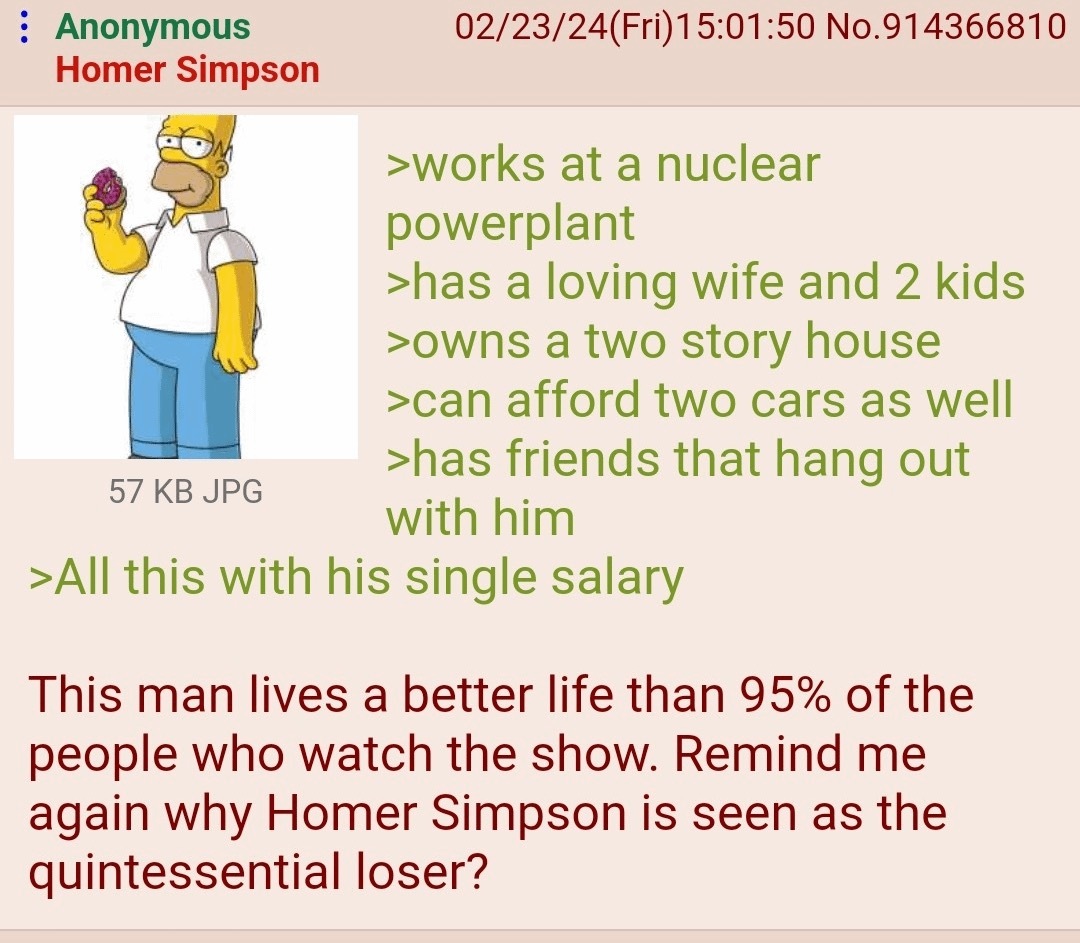this post was submitted on 26 Mar 2024
1073 points (98.6% liked)
Greentext
5618 readers
2321 users here now
This is a place to share greentexts and witness the confounding life of Anon. If you're new to the Greentext community, think of it as a sort of zoo with Anon as the main attraction.
Be warned:
- Anon is often crazy.
- Anon is often depressed.
- Anon frequently shares thoughts that are immature, offensive, or incomprehensible.
If you find yourself getting angry (or god forbid, agreeing) with something Anon has said, you might be doing it wrong.
founded 1 year ago
MODERATORS
you are viewing a single comment's thread
view the rest of the comments
view the rest of the comments

My point is, for a city, every square foot of street has an operational cost, and on top of that infrastructure needs to be rebuilt every x years (I think around 20 ~ 25).
While the upfront cost of said infrastructure tends to come from subventions when building a new development, the city needs to cover the costs for both operations and rebuilding once it's needed.
Why does this matter? Well, detached single-family houses provide lower revenue per square foot of street than middle housing or mid-rises, eventually creating a hole in the city's pockets.
I'm not explaining it very well, but I'll suggest taking a look at this:
https://www.strongtowns.org/journal/2023/6/21/whats-the-sweet-spot-for-building-housing-inexpensively
Climate Town - The suburbs are bleeding America Dry
If cities had money, they could build public housing or promote affordable options.